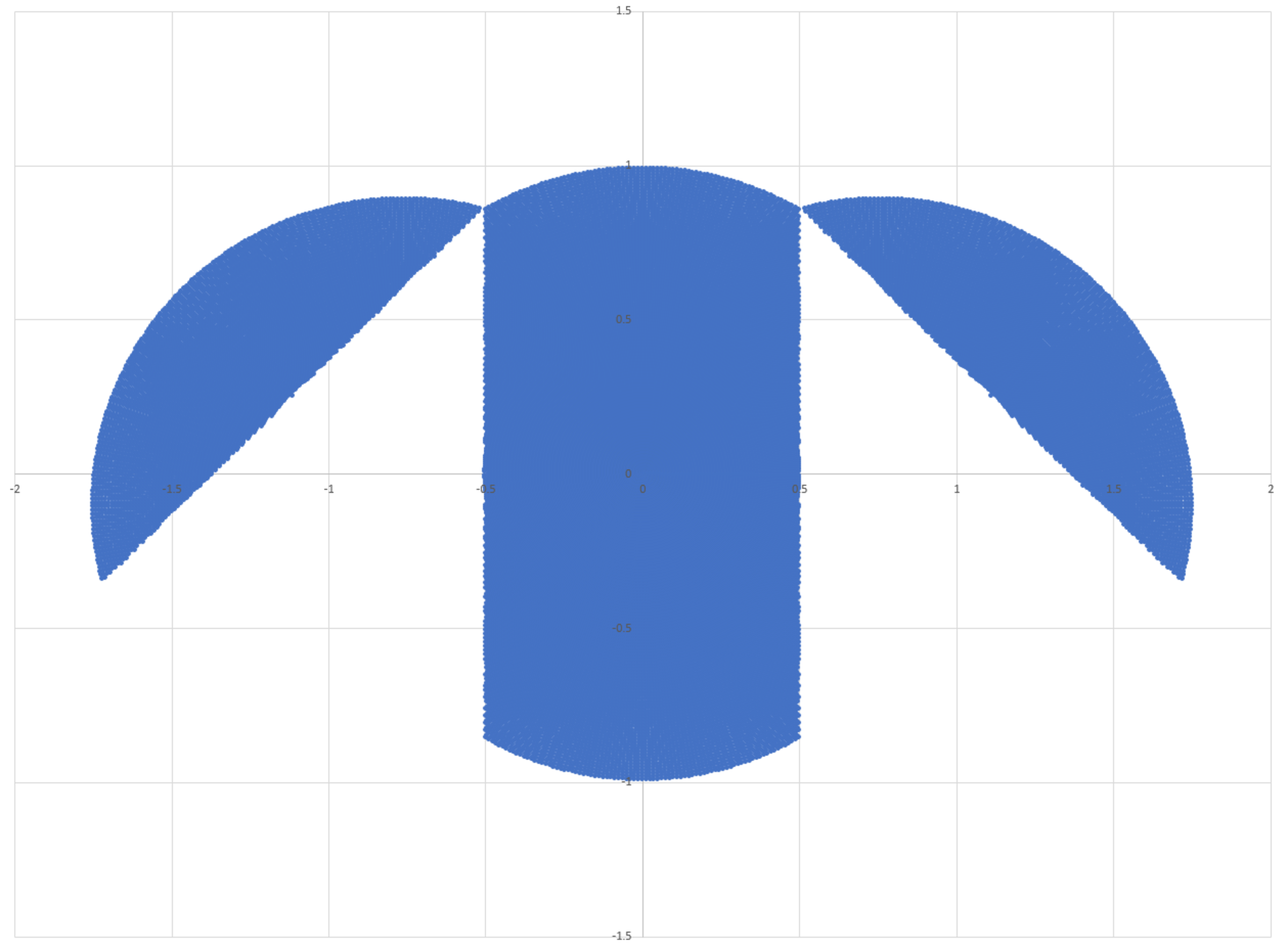Winged Disk Moment
Start with a circular disk of radius , centered on the origin in the plane. The disk has unit of mass per unit area. Next transform the disk as follows:
1) If an infinitesimal piece of disk has an coordinate with absolute value less than , leave it where it is
2) If an infinitesimal piece of disk has an coordinate greater than , rotate the piece counter-clockwise about the point by an angle of degrees
3) If an infinitesimal piece of disk has an coordinate less than , rotate the piece clockwise about the point by an angle of degrees
What is the moment of inertia of the transformed disk about the axis?

The answer is 2.206.
This section requires Javascript.
You are seeing this because something didn't load right. We suggest you, (a) try
refreshing the page, (b) enabling javascript if it is disabled on your browser and,
finally, (c)
loading the
non-javascript version of this page
. We're sorry about the hassle.
Consider any point on the disk with x-coordinate greater than 0.5. Let such a point be r = ( x , y ) . Transformed coordinates as per the guidelines can be computed as such:
r = [ x y ] p = 2 1 [ 1 3 ] R = [ cos π / 4 sin π / 4 − sin π / 4 cos π / 4 ]
[ x n y n ] = p + R ( r − p )
Therefore:
x n = 2 1 + 2 1 ( x − 2 1 − y + 2 3 )
The moment of inertia of the region of transformed coordinates about the Y-axis can be computed as such:
I t = ∫ 0 . 5 1 ∫ − 1 − x 2 1 − x 2 x n 2 d y d x
The moment of inertial contribution due to the transformed region left of the line x = − 0 . 5 is equal to I t due to symmetry. For the rest of the disk, the moment of inertia about the Y-axis is:
I d = ∫ − 0 . 5 0 . 5 ∫ − 1 − x 2 1 − x 2 x 2 d y d x
All integrals are outsourced to Wolfram-Alpha. The total moment of inertia of this winged disk is, therefore:
I = I d + 2 I t I ≈ 2 . 2 0 5 5 4 6